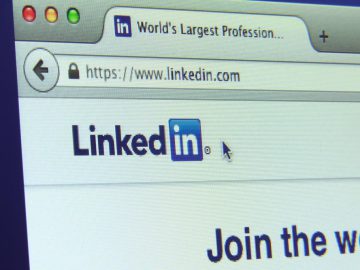The Gist
- Advertising’s negative impact. Advertising is fundamentally manipulative and disruptive, shaping consumer behavior through deceitful tactics that erode trust and promote a culture of dishonesty.
- The call for change. A future without ads encourages direct value exchange, fostering genuine competition and creativity and allowing consumers to pay for the content they truly value.
- Quality over capital. Success should be determined by product excellence, not marketing budgets, to create a more meritocratic marketplace that rewards innovation.
From the moment we wake up and check our phones to the time we fall asleep with a streaming service playing in the background, ads relentlessly bombard us. They’re on our screens, in our feeds, interspersed in our favorite podcasts and even peppered throughout our towns and cities.
Yet, despite their ubiquity, the truth is that ads are and have always been fundamentally corrosive. They are inherently manipulative and disruptive, and they promote a culture that values deceit over integrity.
Enough!
A future without ads isn’t just a dream; it’s becoming increasingly a necessity for a society that should value excellence, creativity and genuine human connection.
The Manipulative Nature of Advertising
At their core, ads are manipulative. They are designed to create desires, shape perceptions and drive behaviors in ways that benefit the advertiser, often at the expense of the consumer. Advertising often employs tactics that border on deceit — exaggerating benefits, downplaying drawbacks or using emotional triggers to sway decisions.
This practice isn’t simply annoying. It is harmful in fundamental ways. It cultivates a culture where lying, cheating and deceiving are normalized as a matter of course, as long as they lead to profit. In fact, we become conditioned to accept a world where it’s acceptable to distort reality to make money. “It is what it is,” we wink-wink and shrug our shoulders, as if advertising were some sort of a law of nature.
This isn’t simply bad for consumers. It’s bad for society at large. When deception becomes a tool of the trade, it seeps into the culture, subtly but relentlessly teaching us — in fact, indoctrinating us with the notion — that dishonesty is an acceptable means to achieve “success.” It does not have to be this way.
Related Article: The Evolution of Digital Media Ads
No One Likes Ads: A Disruption of Flow and Creativity
No one likes ads. Sure, once in a while, we endure an ad that turns out to be funny or entertaining, but mostly we don’t look forward to watching or listening to ads. They disrupt our flow when we’re engaged in something we love, whether it’s watching a movie, reading an article or listening to music. Ads break immersion and flow, jarring us out of our user experience and back into a cold commercial reality that we didn’t choose to engage with.
This constant interruption isn’t just annoying. It’s detrimental to our mental health. Studies have shown that interruptions reduce our ability to concentrate, diminish our enjoyment of content and increase stress levels. In an era where we are constantly seeking ways to minimize distractions and enhance focus, ads remain a stubborn defying force that insists on putting money above people.
For content creators, the ad model is demeaning. When an artist or a podcaster, in the middle of their creative expression, suddenly pauses to hawk a product they may not even believe in, the act undermines their credibility and dignity, reducing them from a self-respecting creator to a hawker of goods and services.
Viewers or listeners sense this compromise, and it dilutes the trust they place in the creator. When creators are forced to serve the interests of advertisers, their authenticity suffers, and so does the quality of their work. The notion that they are struggling for something higher than our daily earthly squirms of desire is mercilessly cut in the knees by the commercial break. It’s as if a higher authority were declaring mockingly: “Look at you! You are just like all the rest: A buckler to the buck.”
Related Article: Stop the Spam: Tackle Marketing Fatigue and Boost Customer Loyalty
Advertising Does Not Promote Excellence
Perhaps the most significant harm of advertising is that it does not promote excellence. The rule of the game is not, “Let the best product win.” Instead it is, “Let the best financed product win.”
Indeed, in such a world, the product that is backed by the biggest marketing budget is the one that takes the prize. It’s a game where the rich get richer, and the rest, excellent or otherwise, struggle to barely compete. In other words, instead of a market-driven meritocracy, we have a money fueled plutocracy.
Such a system creates a distorted market where success depends less on innovation or quality and more on capital — pure, willful, bulldozing capital. The consequences range from annoying mediocrity (The Windows Operating System, Salesforce.com) to catastrophic failure (Boeing, BP’s Deepwater Horizon).
View all
A Future Without Ads: Embracing a Fairer Model
It’s time to imagine a future without ads, where value is created and exchanged more directly. Instead of relying on a business model that depends on deception and manipulation, we should move toward a model where those who consume value pay for that value directly. This approach would encourage businesses to focus on delivering quality products and services rather than manipulating perceptions through advertising.
In a world without ads, consumers would pay for the content they value, whether it’s a subscription to a news site, a fee for streaming music or a payment for an app. Content creators and businesses would thrive based on the quality and uniqueness of their offerings, not on their ability to play the advertising game. The playing field would level, fostering genuine competition and innovation. Creators could focus on what they do best — creating — without the burden of pleasing advertisers or avoiding topics that may offend them. Consumers, in turn, would enjoy more authentic content, knowing it exists for its own sake and not as a vehicle for selling something else.
A future without ads may seem radical, but it is already becoming a reality in certain corners of the digital world. Ad-free subscription models, like those offered by some streaming services, are gaining traction, proving that people are willing to pay for uninterrupted, high-quality content. These models offer a glimpse of a more honest and equitable future, one where excellence, integrity and creativity are rewarded rather than punished.
Learn how you can join our contributor community.




